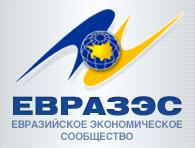On Oct. 6, 2007, the leaders of the Eurasian Economic Community (Eurasec) convened their 15th anniversary summit at Dushanbe, Tajikistan. Although Russian President Vladimir Putin described this session of the Eurasec Intergovernmental Council as one of the organization's most successful, the most notable development at the meeting was Moscow's decision to pursue deeper economic integration with only some of the organization's members. Eurasec's main function is to promote trade ties among countries that formed an integrated economic system during the Soviet period. Since the U.S.S.R.'s disintegration in 1991, these states have frequently diverged in their national macroeconomic policies and have engaged in trade wars and other dysfunctional economic strategies. The inability to reach a consensus among all the former Soviet republics led those states most committed to economic integration in the former Soviet space to collaborate within Eurasec. At present, Belarus, Kazakhstan, Kyrgyzstan, Russia, Tajikistan, and Uzbekistan are the full Eurasec members. Armenia, Moldova, and Ukraine have observer status.
Eurasec Summit Exposes Deep Economic Divisions Among Former Soviet Republics

